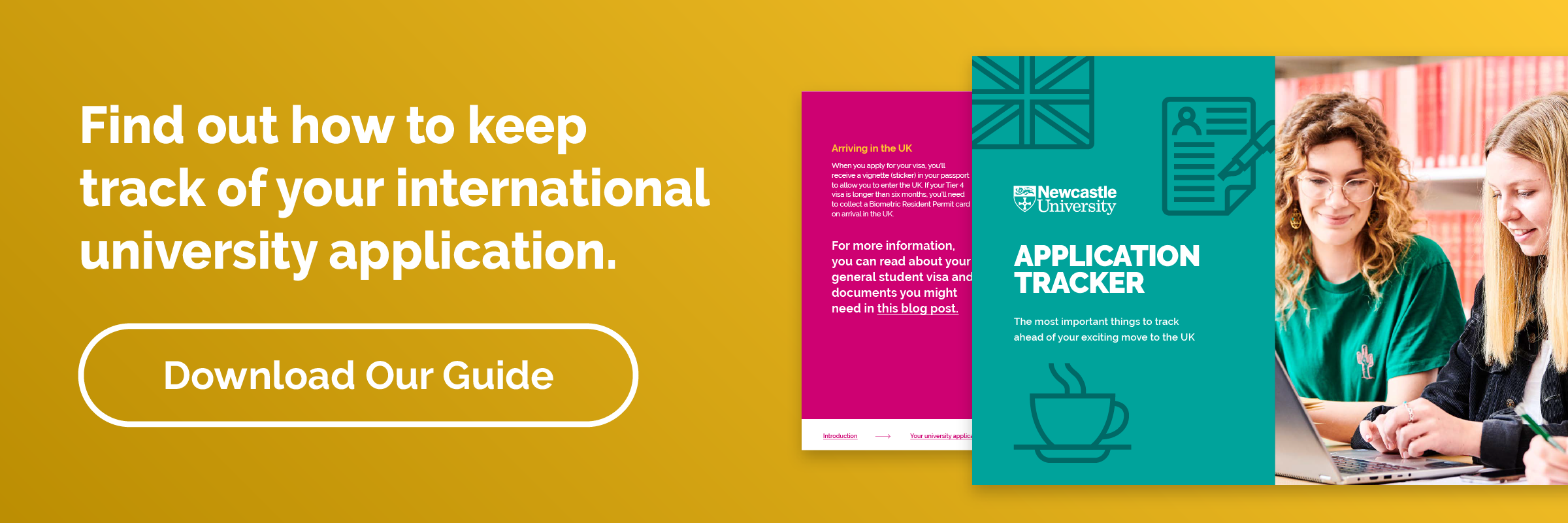Most UK universities will continue to review and accept applications from international students until later in the academic year, so there’s no need to rush. As long as they’re accepting for the academic year you want to start, you can send over your information. Don’t leave it too late though, applications received up until the 15th of January are guaranteed to be considered. But after that, there’s a chance they might not be.
There’s a lot more important information you need to know about university applications for international students.

Advice for international students applying to UK universities
What do you need to do first?
The first thing you need to do after deciding that you want to study here is to find a course and university that suits you.
There are lots of different universities to choose from so it's important to find out as much as possible about them to get a good idea of where you'd like to study. It's great if you can visit the university campus but this might not be possible, so attend any education fairs in your country or sign up to virtual events.
When considering courses, make sure to think about the entrance requirements and whether or not you can achieve them. International students may have completed different qualifications than applicants in the UK, so you’ll need to make sure your qualifications are recognised.
If you’re confident that your qualifications meet the university entry requirements, then it’s time to apply. If you’re a little unsure, contact the university you’re applying to for more information.
When should you apply?
While the main deadline is in January for UK applicants, anyone applying from outside the UK can still send their applications much later in the year and be accepted.
Again, the most popular courses fill quickly so it's better to apply early to avoid disappointment. Plus, you’ll also need to complete visa and accommodation applications so the later you leave it, the more difficult those steps will be.
How do you apply?
You’ll enter your application through the UCAS website. Choose the academic year that you plan to begin your studies and start the process. Everything is online and the portal will guide you through, making sure you include all of the information that’s needed.
To give your application the best chance of being successful, it’s important to make it as good as possible. When admissions teams come to review it, they’ll be looking for certain things:
- All of the qualifications you’ve attained
- A written personal statement that covers your passion for the course topic you’re applying for. Talk about why you want to take the course and the skills you have that will allow you to be successful at university
- A great attitude to learning
- Being able to articulate yourself fluently and accurately in writing. Make sure all of the written work you provide has been checked for mistakes
- Confirmation that you’ve passed an English language test. If you don't have this, then you can still apply but you'll receive a conditional offer
You’ll fill in basic information and then select your choices. You don’t need to worry about ranking preferences. Universities you’ve applied to won’t see your other applications until you’ve submitted your replies to offers.
Employment history information and references are also included. References are usually written recommendations from a teacher who’s been a part of your education. Remember to ask for references in advance to give them plenty of time to write it.
Once everything is done, you’ll pay a small fee and submit your application. Now all you have to do is wait for the responses from universities.
What next?
Until you’ve received your offers, there isn’t much you can do. We know that this might be a little frustrating and you want to hear the good news, but you may have to be patient. Don’t worry if you haven’t received an answer straight away, the admissions team have to look over thousands of applications which can obviously take time.
During this period, look at visa information and possible accommodation so you’re able to progress to the next stage quickly once you have the response from the university.
Download our free application tracker
There are a lot of different things that go into an international student university application. Managing everything can be difficult and it’s easy to forget something that’s important. To make sure you submit the perfect university application, we’ve put together a tracker that will ensure you’ve done everything you need to at each stage.
For your free copy of our application tracker, simply click on the link below to download it.
